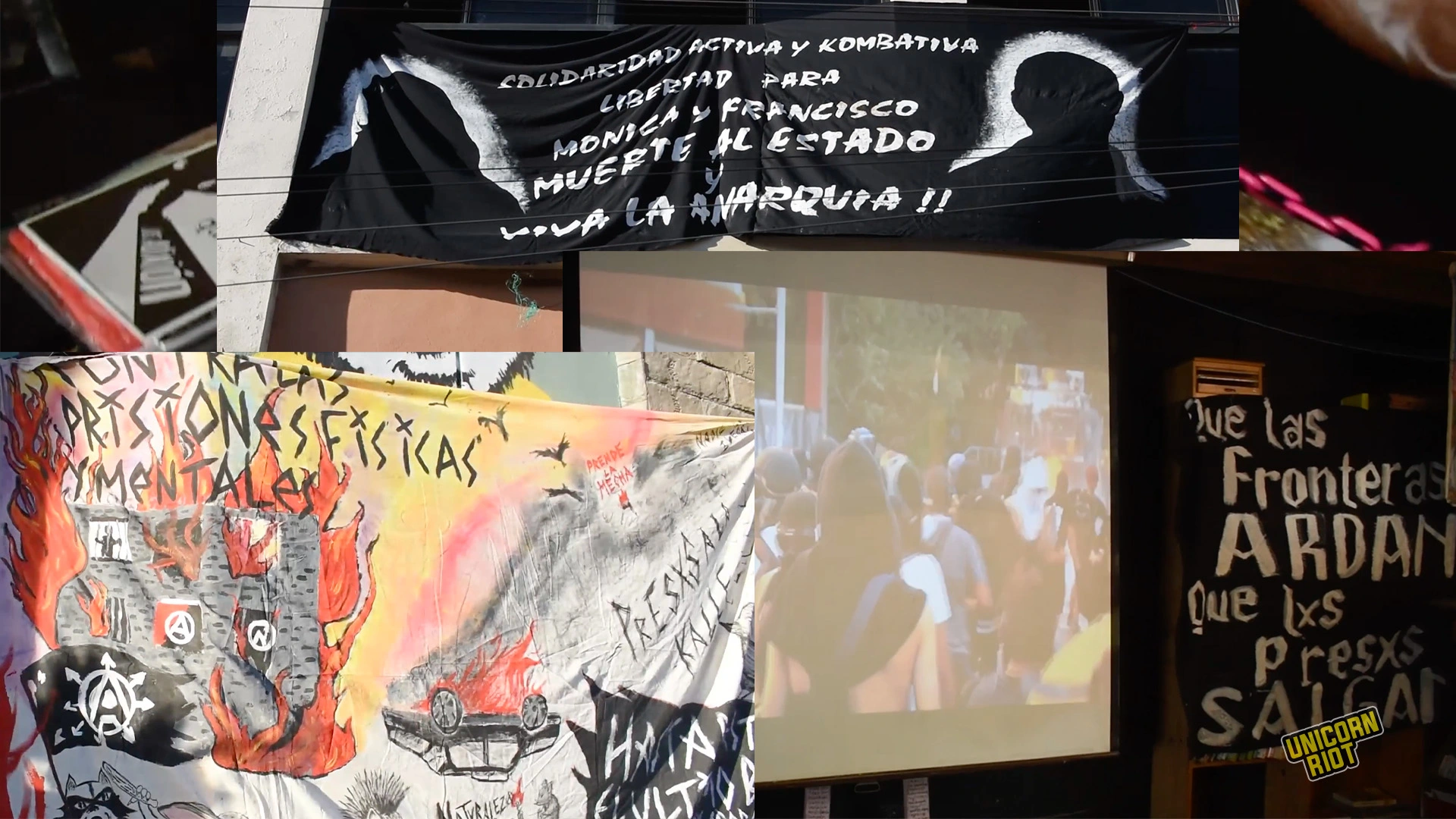Go solarpunk!
schmorp
bog creature
- 14 Posts
- 79 Comments
once every year since 1995 or so, lately every week?

 7·2 months ago
7·2 months agoWhy should the homeless have no right to organize? It’s funny that the only places with (rough but efficient) functioning self-organization I could find so far were among the homeless and the small folk. Those with stuff left to protect are too much up their own arse to want to play well with others.
Also, the plans to get off the street are real, most of the time. Every kindness you show is a seed that one day will point towards the right direction.
I’ve been hanging out with the homeless as a kid, and lived on the streets for a few months as a young adult, travelling and panhandling. I met many very kind, and often very damaged people. They are on the streets because it’s for a variety of reasons the only option they can manage, not because they enjoy scamming you out of a few coins and do nothing all day.
If you are concerned about your money look at the suit wearing people, most of it ends up with them.

 6·2 months ago
6·2 months agoImprove your local community in other ways. Or give in other ways. Not sure what would apply in your local community - I live in rural Western Europe and that’s very different from what you describe. People here set up donation boxes, swap shops, create food banks, organize markets, create safe spaces for minority groups, community gardens … mostly volunteering time. Not sure you are in the position to do this? Sorry things are so heartbreaking. I hope we all figure this out soon.

 4·2 months ago
4·2 months agoHow did you like Georgia? I keep beong obsessed by it (because music).

 41·2 months ago
41·2 months agoHow did you address your trauma? What methods did you find worked?

 264·3 months ago
264·3 months agoThispunk.

 1·3 months ago
1·3 months agoThe farmers themselves have to come to their senses as well and support these government reforms or eventually the crime gangs might take the land and eat the owner. After that is done I hope we can return to a commons system of land use.

 1·3 months ago
1·3 months agoHmm, the farmer interviewed in the article farms 570 ha - maybe consider a restoration of smaller-scale farms and restoration of the commons before complaining about criminals roaming lands the size of an entire village?
The concentration of ownership into fewer and fewer hand means that smaller farmers had to sell out to the big guys, a process that has been going on for very long. When there is nothing left but large swatches of land owned by single persons what is normal folk supposed to do? Turn into serfs again? It’s not even possible anymore because most farmers will just import the cheapest farmhand from other countries because nobody can live a dignified life from the pittance they pay workers.
Not to forget, with large areas of land in a single hand comes monoculture and all the destruction associated with it.
Fuck it, distribute the land to the crime gangs and teach them how to garden.

 5·4 months ago
5·4 months agotrying to catch trains, trying to find the correct room at university …

 5·4 months ago
5·4 months agoNaughty mushrooms doing theirs again, they are so good. I got remembered I never was the uninspired believer in a mechanical world I had become, and turned back to animist knower - a lot of what you write resonates very much with me! Congrats to getting out of the rat race, faraway friend. Cautious as well with the little prankstershrooms. Remember grounding inbetween flights. So many people are getting out - once we get together we will be unstoppable!

 32·4 months ago
32·4 months agoYours is just one of many versions of ‘why I personally don’t do anything’: I’m all for change, but the others don’t want!
Society will never be fully aligned on the solutions and you cannot expect everyone to agree with you, but you still can work for your preferred solutions in smaller groups?

 22·4 months ago
22·4 months agoI would take diagnosis around Neurodiversity with a grain of salt. I suspect both conditions might be the same brain differences presenting differently, and I don’t think science has really gotten to the ground of this yet.

 1·4 months ago
1·4 months agoI like them, and the place where they are. Glad you’ve got them taking care of you!

 41·4 months ago
41·4 months agoSociety is collapsing as we speak and my best case scenario is this one because I do whatever i can to create a soft landing spot for me and my local community.

 8·4 months ago
8·4 months agoYes, and also closeness changes with time. It has been like this in my family. I’ve felt more close to one or the other of my parents over the years depending on what I was doing but I don’t remember having a problem with it. That said, my parents made sure to treat us both equally as kids, and if they felt closer to one of us they didn’t let it show.
 5·4 months ago
5·4 months agoYes, that and a lack of people who could work a local plant, apparently (but then again a lot of youngsters move away for work, go figure). The huge (not that huge really) company running both trash and water is quite interesting. They run at a loss since they exist and get good amounts of EU money, the directors are the town halls of the entire region, the company is listed on the stock market? Doesn’t look like the transparent entity I’d like to entrust my water and trash to … but then also, I admit I have zero clues about weird economic entities or composting on a commercial scale, just getting into it. Microplastics were mentioned - apparently it’s challenging to keep them out of the finished product. Then again, agricultural biowaste seems to be regulated differently? More research work to do.
Living in a tiny town has great advantages, it’s not difficult to just walk into the town-hall and ask all sorts of stuff. They are very un-bureaucratic here, and really seem to be trying to make things work. Then again, you find strange constructs like this private water and trash company where a suspicious lot of local power accumulates. Asking a lot of stupid questions and digging for financial reports is always entertaining and elucidating for sure.

 21·4 months ago
21·4 months agoI’d describe my feelings around the current solar boom as cautiously positive with a good sprinkle of skepticism.
I’d like to see billionaires investing in education towards self-regulating communities. I’d like to see them heavily investing in funding coops, not buying up startups. Billionaires investing in renewables means more money in billionaire’s pockets, because they will just sell the clean energy back to you for a profit while remaining the owners of everything and then some.
I’d carefully agree that more solar panels are good, but I’ve now lived through enough eco hypes to not have at least a few concerns. In the worst case we will now quickly and thoughtlessly plaster solar panels over hectares and hectares of useful farmland, important ecological reserves, and poor people’s homes, just because line go up. And probably trash them all in ten years when maintaining them proves too costly, or the next hype comes along. In the best case we actually start polluting less and use the time we buy to seek for more energy-saving ways of living in general.
Do your friends have a website? I’m always curious to find good ideas to steal for other communities!










Wall-E, is that you?